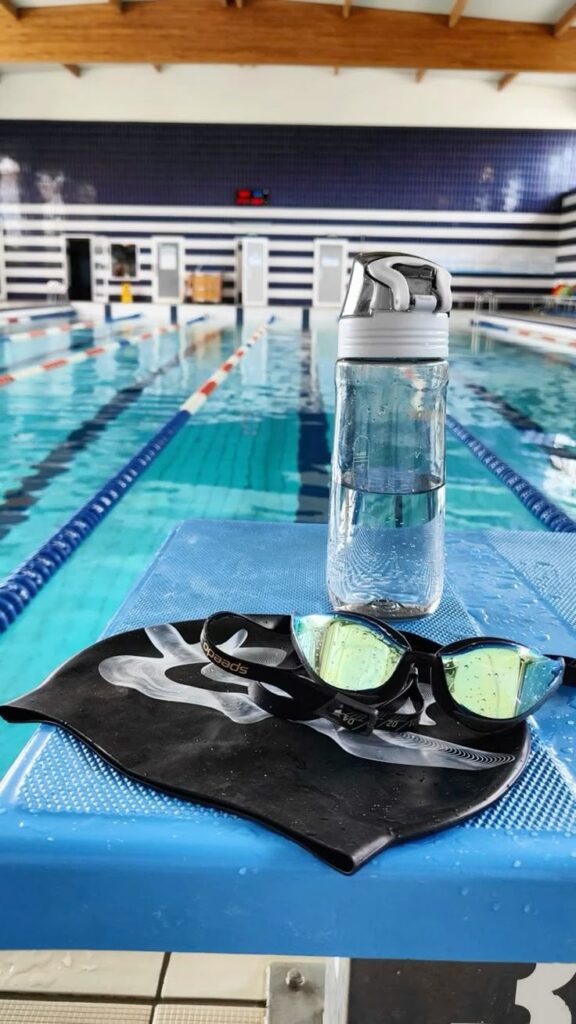When you think of swimming, you probably imagine toned muscles, endurance, and overall physical fitness. But swimming is much more than a full-body workout—it’s also a powerful tool for improving your mental health. Whether you’re gliding through a calm pool, powering through laps, or enjoying an open-water swim, the benefits extend far beyond the body.
Science increasingly shows that swimming has unique advantages for the brain and emotional well-being. From stress relief to improved cognitive performance, the water has a healing effect that many other workouts can’t match. Let’s dive into the mental benefits of swimming you probably didn’t know about.



Key Takeaways
- Swimming isn’t just a physical workout—it’s a proven mental health booster.
- Regular time in the pool can reduce stress, anxiety, and symptoms of depression.
- The rhythmic nature of swimming promotes mindfulness and relaxation.
- Swimming improves memory, focus, and even creativity by increasing blood flow to the brain.
- Both recreational and competitive swimmers report higher mental well-being than non-swimmers.
1. Swimming Reduces Stress and Anxiety


Swimming creates a natural meditative rhythm. As you move through the water, the repetitive strokes and breathing patterns quiet your mind, helping you escape from daily worries. Studies show that swimming can lower cortisol levels (the stress hormone), leaving you feeling calmer and more balanced.
Many swimmers report that even 30 minutes in the water feels like hitting a mental reset button, making swimming one of the best natural stress relievers available.
2. It Helps Combat Depression


Swimming boosts the release of endorphins, also known as “feel-good hormones,” which help fight symptoms of depression. The water’s buoyancy reduces tension in the body, and the sense of weightlessness can create a mood-lifting experience.
In fact, research from Swim England revealed that 1.4 million adults in the UK have reduced symptoms of anxiety or depression through regular swimming. That’s proof that swimming can truly be a form of therapy.
3. Improved Sleep Quality


If you struggle with insomnia or restless nights, swimming could be the solution. Aerobic exercise, like swimming, is linked to deeper, more restorative sleep. Because swimming is low-impact and engages the whole body, it helps release built-up energy and calms the nervous system, making it easier to fall asleep and stay asleep.
4. Boosts Brain Function and Memory

Swimming increases blood flow to the brain, improving oxygen supply and cognitive function. A study from the University of Australia found that swimming can sharpen memory, increase focus, and enhance problem-solving skills. This makes swimming not just good for your body, but also for your career, studies, or any creative projects.
Children and older adults, in particular, can benefit from the cognitive boost swimming provides, making it a lifelong mental wellness practice.
5. Encourages Mindfulness and Mental Clarity


The unique environment of water creates a sense of mindfulness. While swimming, distractions fade away—you’re focused on your breath, your movement, and the sensation of the water. This is why swimming is often compared to a moving meditation.
For people overwhelmed by screens, notifications, and constant noise, swimming offers a rare opportunity to unplug and connect with the present moment.
6. Builds Confidence and Resilience


Learning to swim—or improving your skills—can significantly boost self-confidence. Mastering new techniques, swimming longer distances, or overcoming fear of water teaches resilience and discipline. These psychological benefits carry over into other areas of life, making you more confident in facing challenges outside the pool.
7. Social and Emotional Connection


Swimming doesn’t have to be a solo activity. Group classes, swim teams, or even casual sessions with friends build community and social bonds. Social connections are key to mental well-being, and swimming provides a perfect way to combine fitness with social interaction.
8. A Natural Creativity Booster

Many swimmers say their best ideas come while swimming. The combination of steady breathing, rhythmic strokes, and mental relaxation opens space for creativity. If you’re stuck on a problem, a swim session might be more effective than sitting at your desk trying to force inspiration.
FAQs
Is swimming better for mental health than running?
Both swimming and running boost mental health, but swimming offers additional benefits due to its meditative nature and reduced joint impact, making it especially calming.
How often should you swim to see mental benefits?
Even 2–3 sessions per week, lasting 20–30 minutes, can significantly improve stress levels, mood, and overall mental well-being.
Can swimming help with burnout?
Yes. Swimming provides both physical relaxation and mental clarity, making it an excellent remedy for burnout and fatigue.
Does swimming help children with mental health?
Absolutely. Swimming helps children develop confidence, manage stress, and improve focus, making it beneficial for both their physical and mental growth.
Conclusion
Swimming is more than exercise—it’s therapy for your mind. Whether you’re looking to ease stress, improve focus, or simply find a peaceful escape, the pool is a place where both body and mind can thrive. By making swimming a regular habit, you’re not just training your muscles—you’re strengthening your mental resilience, confidence, and emotional balance.





